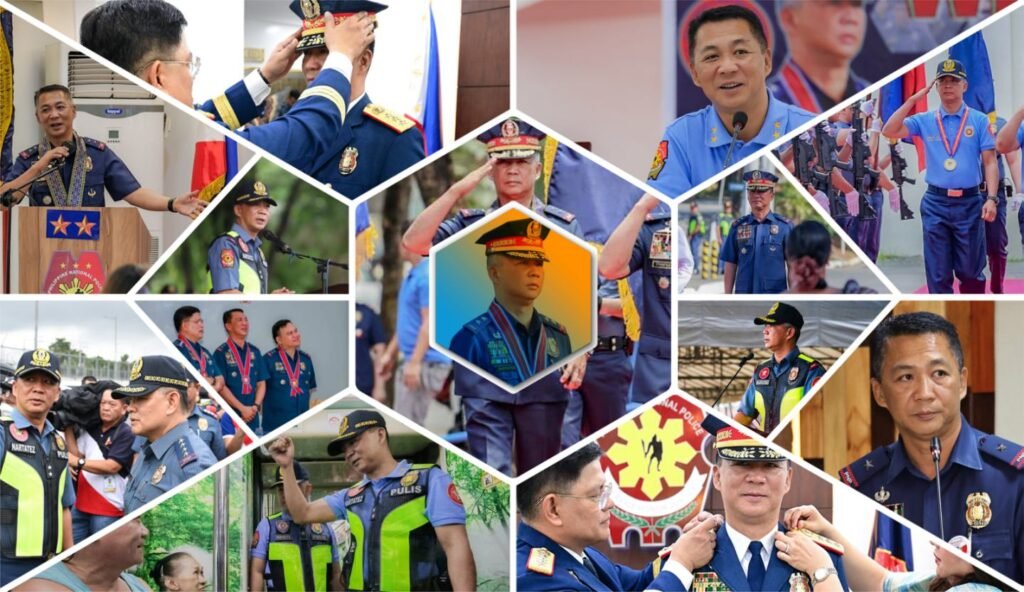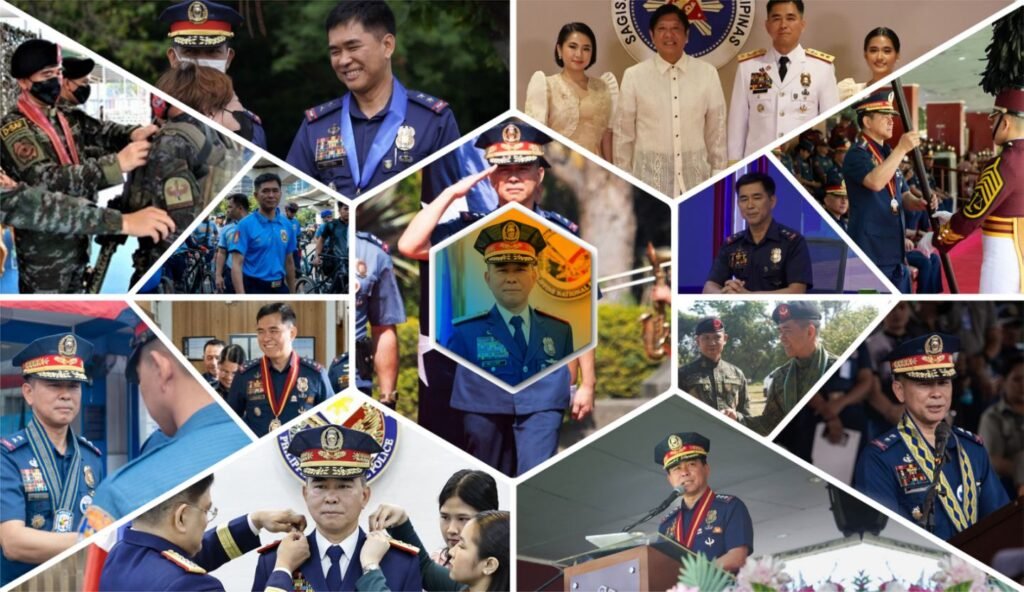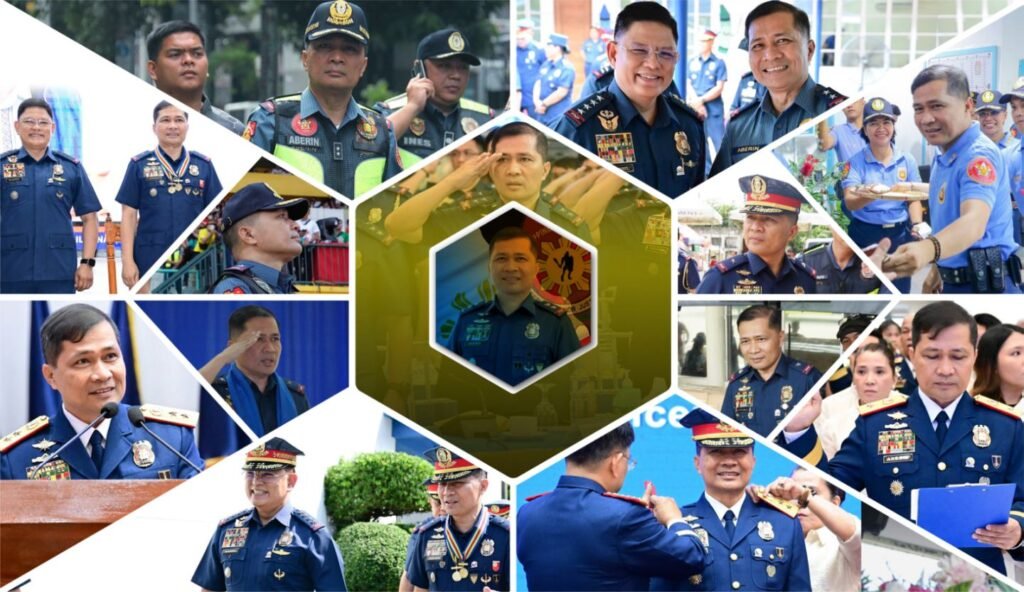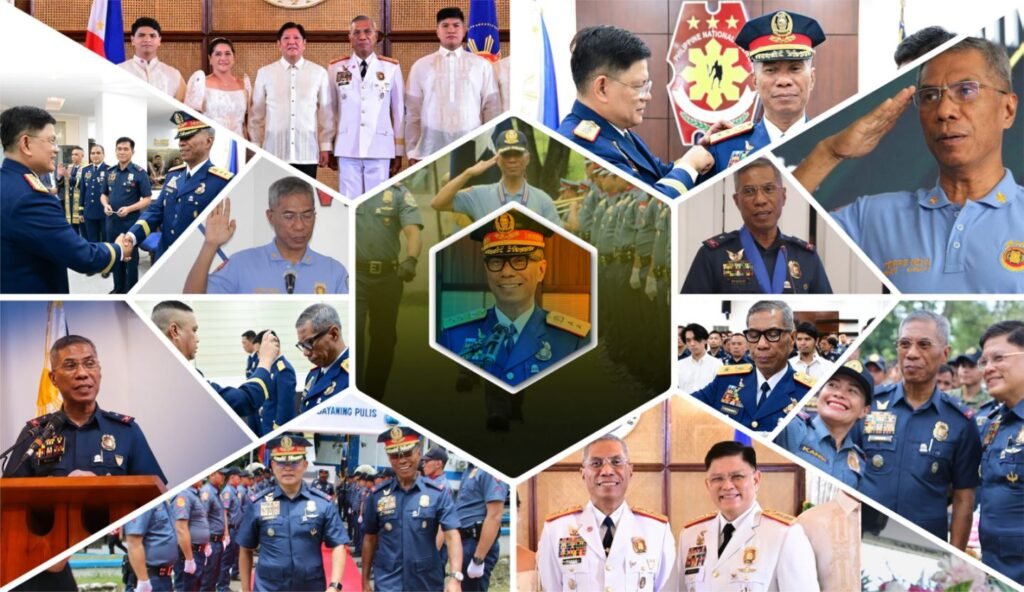At a time when public trust in government institutions is strained and must be constantly earned, the appointment of the next Chief of the Philippine National Police (CPNP) has never been more critical. The role requires far more than rank, tenure, or political endorsement—it requires proven leadership grounded in integrity, character, and competence. As the head of a 232,000-strong police force tasked with maintaining the country’s peace & order and public safety, the CPNP must possess the capacity to inspire unity, lead with principle, and uphold public confidence in one of the country’s most visible and scrutinized institutions.
The CPNP post should not be treated as a mere political appointment. It must reflect the ideals embedded in the Merit and Fitness Principle, as enshrined in NAPOLCOM Resolution No. 2019-001. This resolution, rooted in existing laws and reinforced by Civil Service Commission (CSC) policies, mandates that placements and promotions in the PNP be based primarily on merit, with competence and capability as primary criteria. While the appointment of the CPNP remains the prerogative of the President, it is incumbent upon the leadership to choose someone whose track record, operational experience, and ethical standing truly reflect the spirit of the merit system. Merit signifies value, competence, integrity, excellence, and other qualities that reflect true worth.
Understanding Merit: Competence, Capability, and the Role of Political Trust
To meaningfully apply the principle of merit in selecting the next CPNP, it is essential to distinguish between two key concepts: competence and capability. Competence refers to an officer’s proven performance, demonstrated through experience in command roles, operational accomplishments, and the ability to deliver consistent results under pressure. Capability, by contrast, reflects an officer’s potential and preparedness to take on greater responsibility. It is embodied in leadership qualities, ethical judgment, adaptability, and alignment with institutional values.
In a civilian-led but uniformed and highly structured organization like the PNP, these qualities must be viewed through a unique lens. Character, discipline, and respect for human rights are essential components of capability, while service reputation, field experience, and crisis leadership are clear indicators of competence. A truly meritorious candidate for CPNP must demonstrate strength in both domains. They must be assessed holistically, not in isolation.
However, within the Philippine context, political trust remains a significant—albeit unofficial—factor in the selection of the CPNP. Although the merit-based framework is legally and institutionally mandated, the trust and confidence of the President often influence the final decision. These influences are shaped by personal loyalty, regional and cultural affiliations, and political considerations. For example, with the current AFP Chief of Staff reportedly hailing from the north, there are expectations that the next CPNP may be selected with geographic or political balance in mind.
In practical terms, a balanced and transparent selection model should allocate 80% of the evaluation to merit-based criteria, broken down as follows:
| Criteria and Percentage | Definition |
| 1. Character (20%) | Demonstrated moral integrity and sound ethical judgment. |
| 2. Extensive Field Experience (20%) | Proven leadership in operational and tactical environments (Unit Commander or Chief of Police). |
| 3. Grassroots Policing Model (20%) | Ability to engage communities with empathy and inclusiveness, while adopting a proactive, partnership-based approach to address peace & order and public safety concerns. |
| 4. Accountability and Human Rights (20%) | Track record of upholding constitutional and ethical policing standards. |
The remaining 20% may reasonably account for political trust, acknowledging the reality that the President’s confidence plays a role, though this must never outweigh merit-based qualifications.
Four Officers Who Embody Merit-Based Leadership
Within the current leadership ranks of the PNP, gaining traction from quiet discussions within the halls of Camp Crame to growing visibility across various social media platforms, for their exceptional careers, field-tested leadership, and strategic foresight. They exemplify what it means to rise through competence and capability, proving that meritocracy can work—even in a politicized environment.

PLTGEN JOSE MELENCIO CORPUZ NARTATEZ Jr.
The Strategist with Unyielding Integrity
Born in Santa, Ilocos Sur, PLTGEN Nartatez is a product of the PMA “Tanglaw-Diwa” Class of 1992, with decades of service across the most critical arms of the PNP. His background includes leadership of the Special Action Force, Intelligence, Comptrollership, including PRO 4A and NCRPO Chief. He is known for his ethical leadership, modernization efforts, and principled reform, leading the purging of rogue personnel and driving community-focused programs like BIDA and Project Bathala.
As current Deputy Chief for Administration (real PNP Chief-in-waiting), the second-highest post in the PNP, Nartatez brings both strategic vision and operational excellence to the fore. He stands out not only for his credentials but for his ability to lead by example, embodying integrity, calm authority, and a passion for reform.

PLTGEN EDGAR ALAN OMAS OKUBO
The Silent Warrior, beyond Mere Combat Skills
Known for his humility and effectiveness, PLTGEN Okubo is a proud Ibaloi from Baguio City and a graduate of PNPA “Tagapagpatupad” Class of 1992. He made history as the first Lakan to head both the SAF and NCRPO, units traditionally dominated by PMA graduates. A decorated frontline officer, Okubo is the architect of the Revitalized-Pulis sa Barangay (R-PSB) program, a groundbreaking model of community engagement, peacebuilding, and grassroots policing.
With over 400 awards, including the Metrobank Foundation’s Country’s Outstanding Policemen in Service (COPS) in 2013 and the Award for Continuing Excellence in Service (ACES) in 2024. Okubo is also recognized for transforming systems, from digital payroll reforms to the inclusion of women in frontline policing. Appointed as Chief of the Directorial Staff in 2024, he is a quiet yet powerful force for institutional reform—his leadership rooted in integrity, field excellence, and service of spotless record.

PMGEN ANTHONY ABELLADA ABERIN
Back-to-Basics, Results-Oriented Leader
Born in Burgos, La Union, and a graduate of PNPA “Tagapaglunsad” Class of 1993, PMGEN Aberin is the current NCRPO Chief. His “Three A’s” philosophy—Able, Active, Allied—guides his leadership, which is marked by aggressive campaigns against illegal drugs, e-sabong, and private armed groups, especially in Central Visayas. His field credentials include command of CIDG, AVSEGROUP, and PRO-7, where he demonstrated an unwavering commitment to peace, order, and institutional integrity.
With over three decades of service, he has received national commendations, including the United Nations Medal for peacekeeping. His leadership is defined by his intelligence-driven mindset, ethical command, and strong partnerships with stakeholders. With retirement in 2026, Aberin continues to lead major operations that reflect not only results, but responsibility.

PMGEN NICOLAS DELOSO TORRE III
The Bold Reformer in Complex Times
Born in Jolo, Sulu, and raised in Koronadal City (Marbel), PMGEN Torre III is a proud graduate of PNPA “Tagapaglunsad” Class of 1993. His leadership has been shaped by high-stakes, high-pressure assignments throughout his career. As Director of the Criminal Investigation and Detection Group (CIDG), he led the peaceful and precise execution of an International Criminal Court (ICC) arrest warrant against former President Rodrigo Duterte (FPPRD)—a landmark operation in Philippine law enforcement. Before that, he spearheaded the tense and carefully coordinated arrest of Pastor Apollo Quiboloy in Davao, demonstrating both courage and strict adherence to legal procedures.
Torre’s career has not been without scrutiny. During his tenure as Chief of the Quezon City Police District (QCPD), he faced public backlash over the perceived VIP treatment of a retired officer. In response, he took full accountability and ultimately resigned—an act aimed at preserving public trust. His leadership was further tested during the complex legal process surrounding the arrest of FPRRD, which he handled with professionalism. Backed by advanced training in human rights, intelligence, and crisis management, Torre’s track record reflects a leadership style defined by resilience, reform, and reflective decision-making.
AI-Based Evaluation for the Contenders
To provide a more balanced perspective, the writer utilized AI to generate a numerical and comparative analysis of the four contenders, applying a framework weighted at 80% for merit-based criteria and 20% for political trust, reflecting both institutional standards and real-world considerations. This analytical approach allowed for the systematic breakdown of qualifications across key leadership dimensions, including character, field experience, community-based policing, and commitment to human rights. By transforming qualitative achievements into measurable insights, AI minimizes subjectivity and strengthens the integrity of the evaluation.
While it does not replace human discernment, AI serves as a valuable decision-support tool that enhances objectivity, promotes transparency, and reinforces meritocracy in identifying the most suitable candidate for Chief of the Philippine National Police. In an environment where both performance and perception matter, AI offers a clearer lens through which leadership potential can be fairly and thoughtfully assessed.

AI-based Score Comparison:
While PLTGEN Nartatez Jr. is a formidable candidate known for his outstanding credentials and ethical leadership, Okubo gains an edge with his extensive field experience and tangible grassroots innovations, such as R-PSB, which directly address community needs. PMGEN Aberin demonstrates solid command capability and intelligence-led operational leadership, but he ranks slightly lower in terms of community engagement and rights-based reform. Meanwhile, PMGEN Torre III shows commendable boldness in handling politically sensitive cases; however, he carries minor reputational baggage and has a less extensive record in community-based policing.
AI-Based Final Assessment:
PLTGEN Okubo emerges as the strongest merit-based candidate for the next CPNP—combining operational strength, institutional reform, grassroots credibility, and ethical consistency.
He is the model of substantive leadership over surface politics, and in a time when trust must be rebuilt and earned, his brand of silent yet transformative leadership may be exactly what the PNP—and the nation—needs.
PNPA at the Helm: Making the Case for a Lakan as CPNP
Both AI-based evaluation and sentiments within the officer corps, particularly among the 5,000-strong PNPA alumni, indicate that a PNPA graduate is well-positioned to assume the top post. Since the PNP was institutionalized in 1991, leadership across all major units, including the CPNP, has traditionally come from the Philippine Military Academy (PMA), a legacy institution rooted in military tradition. While PMA graduates have brought valuable leadership to the police force, the PNPA was specifically created to develop officers uniquely trained for civilian law enforcement.
PNPA cadets are developed through a law enforcement-centered curriculum that prioritizes human rights, community engagement, public accountability, and community service-oriented professionalism—principles that are foundational to the PNP’s civilian character as mandated by the 1987 Philippine Constitution and existing laws. As the organization continues to mature and confront increasingly complex challenges in domestic security, public trust, and institutional reform, many believe it is time for the PNP to be led by one of its own—an officer molded through its own doctrine, culture, and operational systems. A PNPA graduate, therefore, brings not only competence and experience but also institutional continuity, shared identity, and a deeper alignment with the organization’s core values.
Ultimately, the decision lies with the President, whose trust and confidence in the appointee will determine the direction of the PNP’s leadership and the legacy it will leave in shaping the future of national peace and order.
Conclusion: Merit Must Lead the Way
The selection of the next Chief PNP must transcend tradition and political convenience. The decision must be anchored in merit and institutional relevance. AI-based assessments and prevailing sentiments within the PNP officer corps point to a shift in leadership expectations—one that values not only competence and capability but also a deep understanding of the PNP’s civilian identity. The rising prominence of PNPA-trained leaders highlights the maturity of the institution, which has demonstrated its capacity to develop top-tier commanders—officers molded not by military convention, but by democratic policing principles, respect for human rights, and accountability to the communities they serve.
While political trust remains an undeniable factor in the selection process, it must not override the essential qualifications required of the post. The nation deserves a CPNP who embodies and continues the highest standards of leadership. Someone who can bridge internal discipline and public confidence, someone who inspires not through connections but through conviction. Whether it’s through leading from the frontlines, implementing groundbreaking programs, or defending constitutional principles under pressure, the next CPNP must embody the tradition of the highest ideals of public service.
The Filipino people deserve no less.
by: Byron Filog Allatog
———————————————————-
DISCLAIMER
The views expressed in this article are those of the author. They do not necessarily reflect the position of the Philippine National Police, the Armed Forces of the Philippines, or the Philippine Government.
CSOP101 is a professional learning site for community policing advocates, practitioners, and supporters in changing the policing landscape. It is likewise issue-based, related to or addressing nation-building. The views expressed within individual blog posts (police blog and academic) are those of the author and do not reflect any official position or that of the author’s employers. Any concerns regarding this blog post or resources should be directed in first instance to byron.allatog012@gmail.com.

